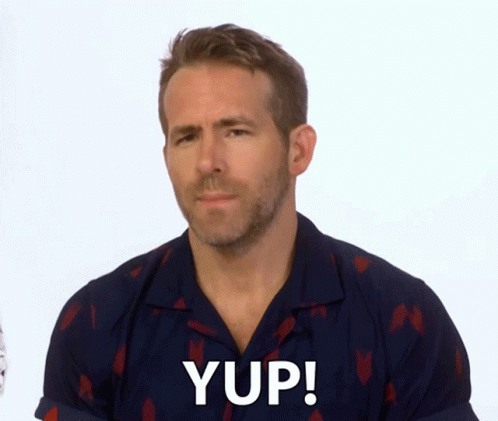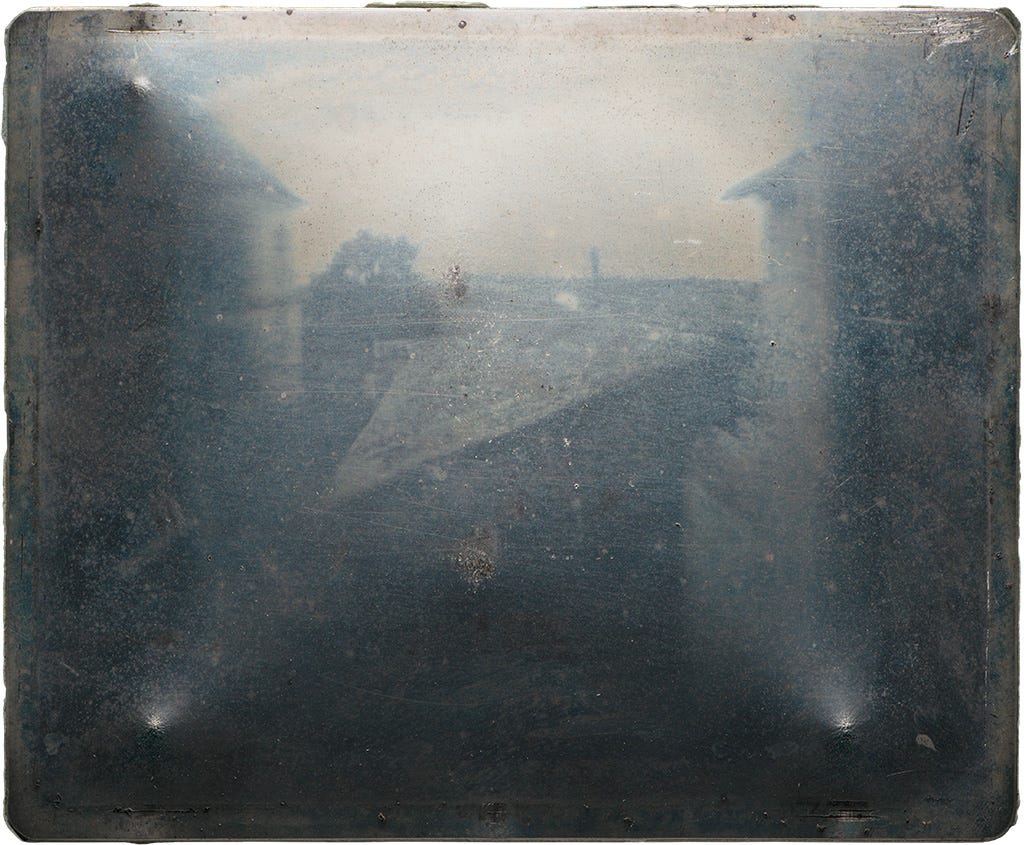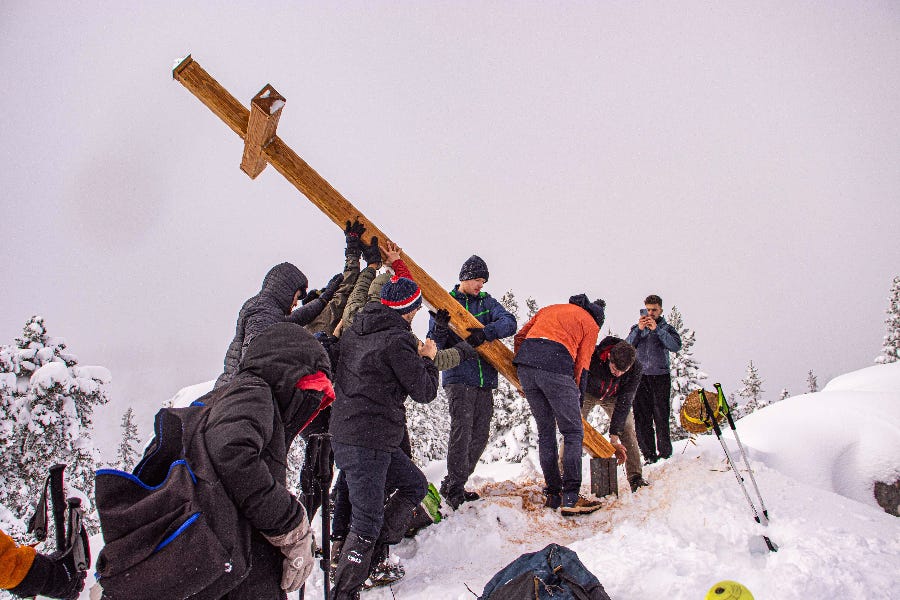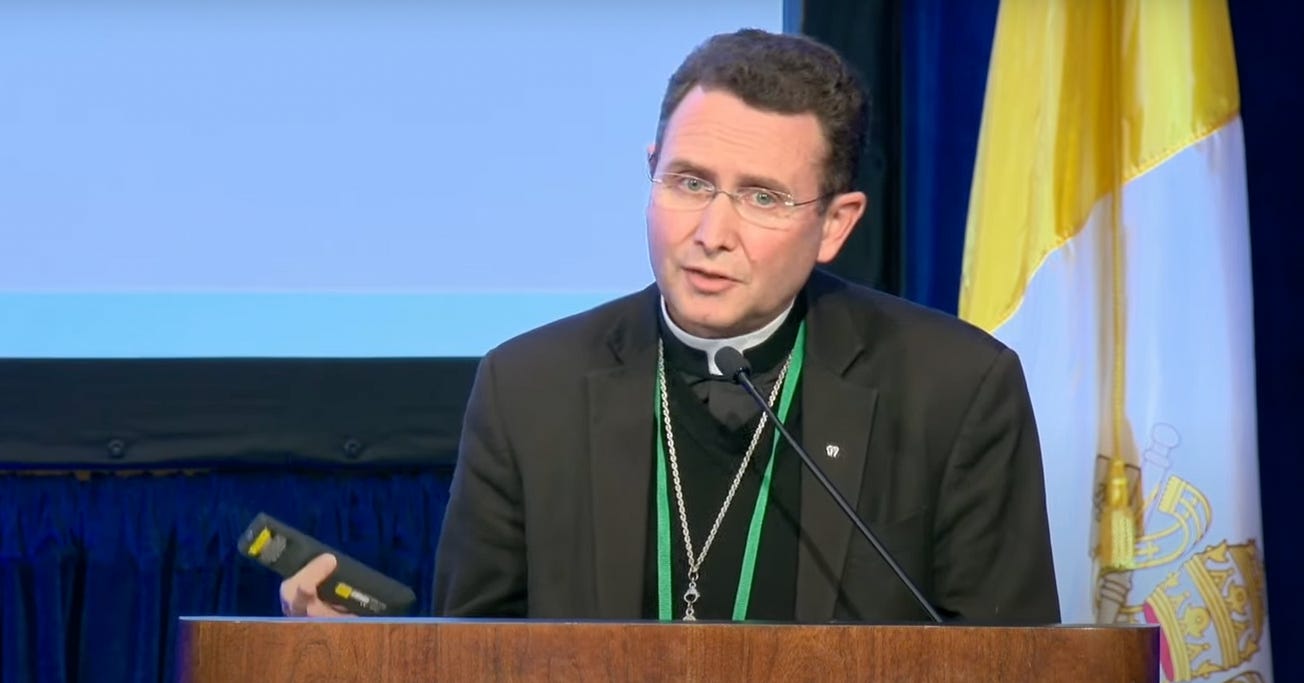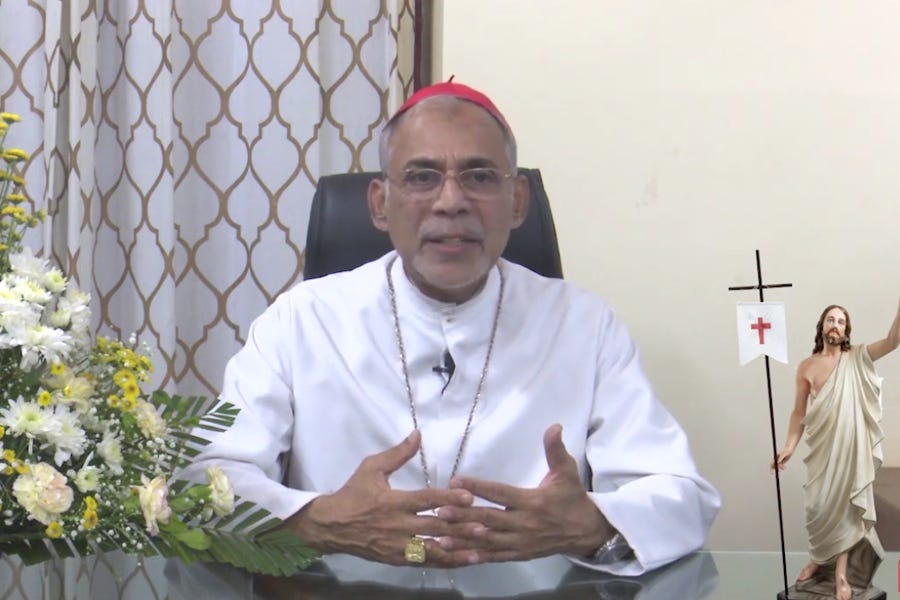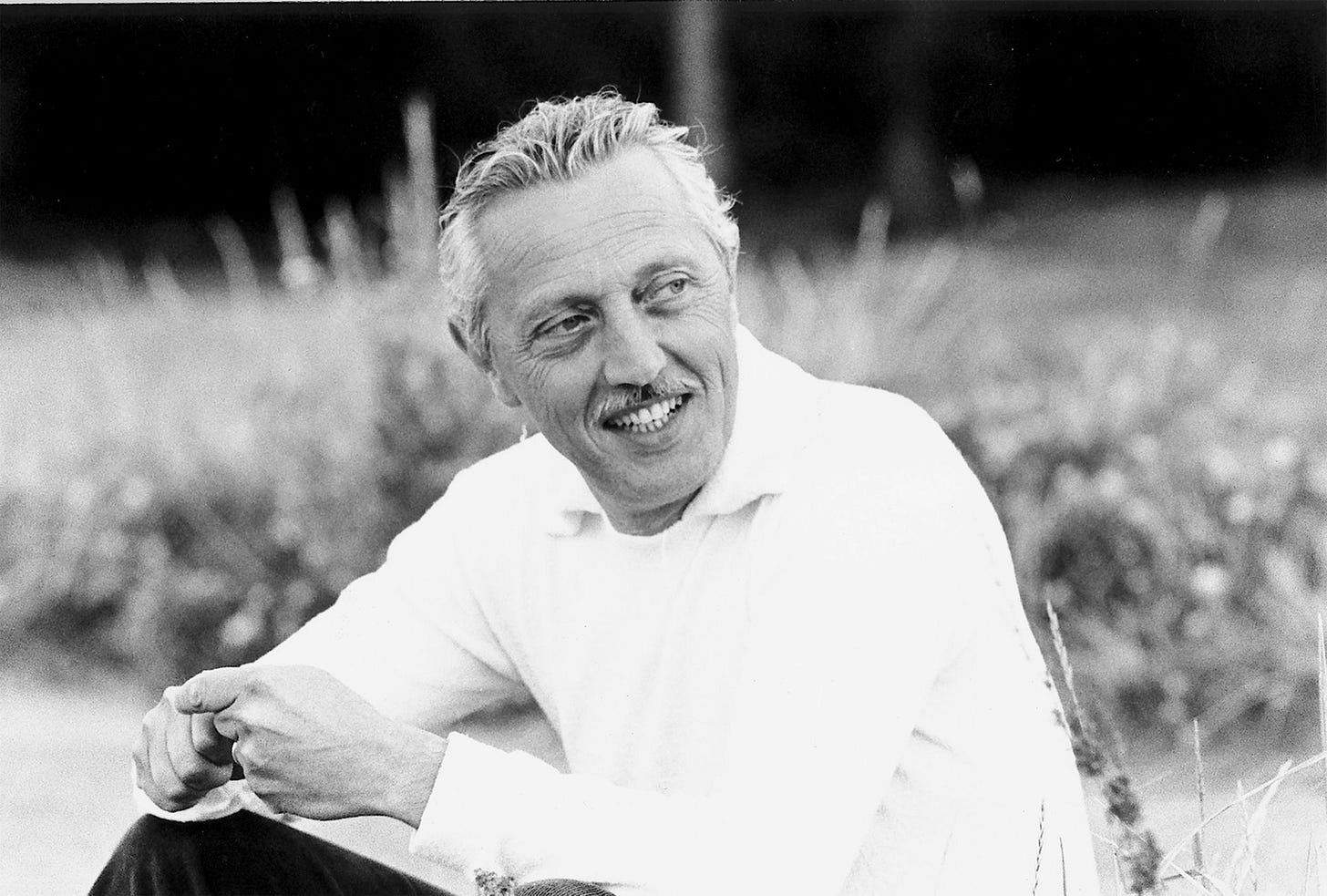
Hey everybody,
Twenty-one years ago today, on October 25, 2001, Microsoft released Windows XP, and with it the last iconic Windows wallpaper, which has since become - probably - the most viewed photograph in all of history.
You know the one I’m talking about.
This hill:
If you’re curious, the hill is in Sonoma, California, and is today covered in the grape-growing rows of a vineyard.
A photographer named Charles O’Rear used to drive past the hill every week, when he made the trek to visit his girlfriend in Marin County each Friday.
O’Rear snapped the photo some Friday in January 1996, and uploaded it to a stock photo agency’s website.
The photographer didn’t think much about the picture again, until some designer a few years later at Microsoft decided it would work with the aesthetic of XP.
Microsoft paid an undisclosed sum - described as a few hundred thousand bucks - for the exclusive license to the picture.
From there, it has been viewed by at least a billion people. It’s hard to be certain about these things, but it’s generally estimated to be the most viewed picture of all time.
Here’s what the “Bliss” hill looked like a few years later, once the vineyard went up:
Now that we’ve covered that pressing bit of history, let’s get to the news. And as it happens, we’ve got a very international news roundup for you today:
The news
The Chinese government, you see, wants to ensure that the practice of Catholicism doesn’t undermine the political philosophy or propaganda of the Chinese Communist Party, which is integrated into the mechanism of government at every level. And the Holy See says it doesn’t want to see bishops thrown in jail, or see a split between the official, state-sponsored “Chinese Catholic Patriotic Association,” and the once-clearly-distinct “underground Church” of bishops and priests in communion with Rome.
The deal is supposed to iron all that out. Rome says it’s a pragmatic decision to do what can be done for Christians in a regime which, according to the Associated Press, is bent on “systematic suppression of Christianity.”
The problem - at least as a lot of analysts see it - is that since the Vatican deal was first signed in 2018, Chinese officials have continued to appoint bishops without Vatican foreknowledge, jail dissident bishops and threaten outspoken ones with prison time, outlaw the religious formation of children, and periodically bulldoze Catholic churches.
All the while, a genocide in western China continues against the Uighur people, and the Holy See has not spoken on the issue - presumably because of the agreement.
So while Vatican officials say the deal is making progress for the Church in China, lots of observers call that into question.
And the announcement of the deal’s renewal on Saturday has taken on a kind of symbolic significance, because on the same day, Chinese President Xi Jinping prepared to take an unusual third term as the country’s leader, centralized his political and administrative power during a CCP assembly, and oversaw - it seems - the dramatic “cancellation” of his more liberal predecessor, Hu Jintao.
The unpersoning of Hu, by the way, is quite a thing. Give this annotated version a watch:
Greater annotated detail of Hu Juntao #胡锦涛(~80) forcibly escorted out ahead of the final vote of the 20th Party Congress #二十大 closing on Saturday—stunning to see a fmr CPC #共产党 General Secretary #总书记 manhandled in such an irreverent manner. 😳 pic.twitter.com/a6245MZtFQ
— Wes Andrews (@Wes_Andrews) October 22, 2022
Anyhow, Ed brings you this week an analysis of the deal, according to the three criteria for success established by Cardinal Pietro Parolin, the Vatican’s secretary of state.
Now - if you will - allow me one other consideration on the subject.
A number of people who raise issues with the deal have also asked a perfectly cromulent question which deserves consideration: “What’s the alternative to the deal?”
To be candid, I don’t know, and neither do you. And we should be wary about those sitting in the West suggesting that the Holy See should make no effort to normalize Christianity in China, and should instead sit idly by while bishops are jailed or disappeared, or appointed by the Communist Party without prior Vatican approval, or while the catechesis of children is outlawed, or while churches are periodically bulldozed.
After all, we Western Christians aren’t the ones who would suffer those persecutions.
On the other hand — those persecutions are … exactly what’s happening, right now, four years into the deal. And it’s possible that things are actually going backwards for the Church in China — especially given Xi Jinping’s stated commitment to the “Sinicization” of religion in China.
So it’s reasonable to ask - if the deal doesn’t seem to be getting anything, and if it does seem to be costing the Church moral authority and the freedom to speak for human dignity - what exactly is the point?
In Rome, they say the point is to make progress, one step at a time. But others aren’t so convinced.
Again, here’s Ed’s analysis of where things stand.
📰
Speaking of China, the Catholic chief executive of Hong Kong promised on Wednesday to crack down on civil liberties and freedom of the press in the Special Administrative Region.
The changes announced by Chief Executive John Lee Ka-chiu are likely directly linked to the trial of Cardinal Joseph Zen, who is on trial right now for his involvement in a charity which provided support for imprisoned pro-democracy demonstrators — Lee has promised to enact new security measures pushing back against exactly the kind of thing Zen stands accused of doing.
During his campaign for office this year, Lee promised that these kinds of security measures would not be a priority for his administration. He seems now to have changed his mind.
Meanwhile, the politician has credited his Jesuit education for his drive to “help society as a whole” — despite pushback on that idea from some Catholic democracy activists in Hong Kong.
You can read all this in The Pillar’s report, right here.
Five priests, a religious sister, and three lay people were released in Cameroon on Saturday, more than a month after they were kidnapped by a group that seems to be associated with an Anglophone separatist movement in the French-speaking African country.
Their bishop - undeterred by the prospect of more kidnappings - took the occasion of their release to “condemn in the strongest possible terms the desecration of the Church and to point out the need to protect human dignity.”
The prospect of more kidnappings in Cameroon seems likely.
Start your day with Starting Seven - a daily news roundup in your inbox.
The scandal is not only over the allegations - which include solicitation in the confessional and spiritually manipulative stripping.
The scandal is also because Santier was permitted by Vatican officials to resign for “health reasons” - despite the fact that he was under an undisclosed Vatican-conducted abuse investigation at the time. In fact, the bishop was formally sanctioned in October 2021, but the sanction was also not publicly disclosed until last week.
All of that has struck many French Catholics as a kind of cover-up, in fact, as exactly the kind of cover-up the Holy See committed itself against back in 2018.
Victims’ advocates say that allegations, investigations, resignations, and sanctions should be publicly disclosed, rather than taking place under cover of “confidentiality,” because those events often encourage other victims of abuse to come forward, in order to report what happened to them.
Victims of abuse are often isolated, and filled with self-doubt, and the perception that they are not alone in their experience is often enough to convince them to come forward — for both the sake of justice, and to get whatever kind of help they need.
Well, indeed, French Archbishop Dominique Lebrun announced last Thursday that “other people” have come forward to accuse Santier of abuse. The allegations have been sent to the Dicastery for the Doctrine of Faith.
French Catholics - and ecclesial reform advocates - will be watching carefully to see how those allegations are handled — and whether the Holy See will this time acknowledge its investigation into Santier.
But since several Vos estis lux mundi investigations into U.S. bishops remain officially unacknowledged - despite extensive media (Pillar) coverage of their details, it seems unlikely the Santier case will be handled much differently.
The Pillar spoke this weekend with Archbishop Mark O’Toole — the English bishop tasked in April with leading two big dioceses in Wales, a country which, he told us, he knew little about before arriving there in June.
The archbishop told The Pillar that the Church is in “a kind of new apostolic era,” which calls for evangelization, and which means that Catholics “need to be quite deeply rooted in our faith, and particularly in our personal discipleship of the Lord, our relationship with Him, in order to be able to be strong enough to sustain what secularization is throwing at us.”
Read about O’Toole’s ministry — and his new home in Wales.
And, yes, the next time we talk with the archbishop, we’ll ask him whether - like the rest of the world - he now fancies himself a Wrexham fan. (nota bene: the language in the linked story about Wrexham AFC - the Welsh soccer team owned by Van Wilder’s Ryan Reynolds - will be offensive to the good and pious sensibilities of some Pillar readers. Let the reader beware.)
—
Finally, a report about the exiled priests of Nicaragua.
Since Catholic persecution in Nicaragua ramped up last year, priests and bishops have been arrested or detained, the Missionaries of Charity and the apostolic nuncio were booted from the country, and Catholic television and radio has been shut down.
Nicaraguan President Daniel Ortega believes the Church is undermining his grip on his country, and he’s not willing to let that happen.
Facing the prospect of arrest, or even torture, more than 50 Nicaraguan priests in recent months have looked for refuge in neighboring countries, and a number of priests have been exiled, fleeing - like hundreds of thousands of Nicaraguans - with the threat of violence or arrest in their country.
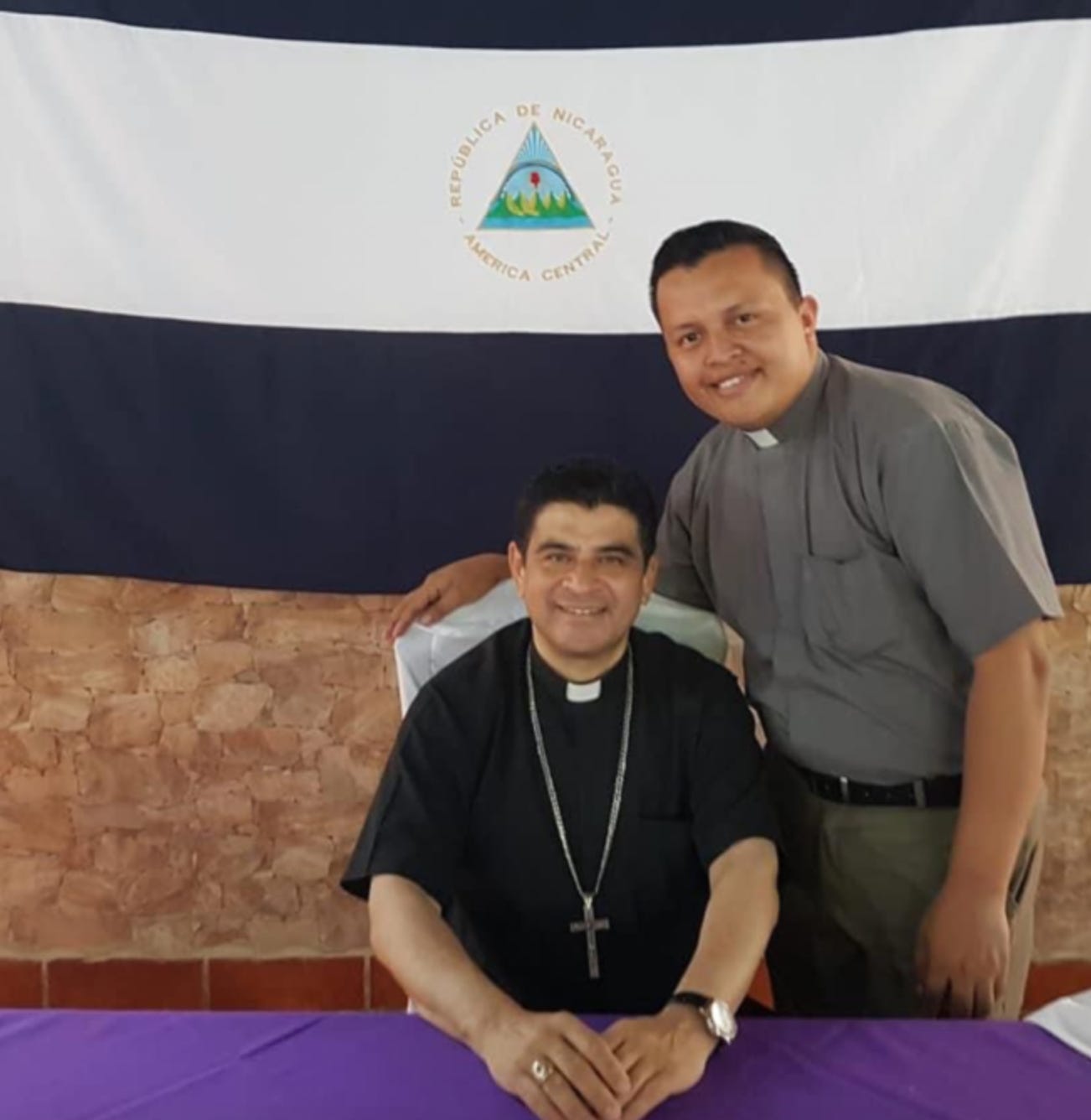
The Pillar spoke last week with three exiled priests of Nicaragua, who talked with us about their experiences, and their country.
Here’s an excerpt:
“People came to us looking for help. At first, the government respected the Church so we went to the prisons to try to help some of the protesters. We took the wounded to private hospitals –they would not serve them in public hospitals or even left them to die – and we accompanied the families in their pain.
On April 20, they killed one of the members of the youth group of my parish.
But defending the wounded, the imprisoned, protecting them, supporting their families became 'terrorism' for the government, so we started getting persecuted. And one day, I was driving in a rural area and was stopped by paramilitary, and they hit me with the stock and barrel of a gun and threatened me.
I didn’t want to leave because my mother was very sick.
But she was in favor of me leaving. I didn’t tell her anything, but some parishioners went and told her what had happened to me. She told me that they might kill me and say it was some robbers and I tried to resist or that they might do something to my car to fake an accident. And she said to me, 'You have to leave, I want you alive, you can do more alive than dead,' so I fled the country.”
Read the stories of the exiled priests of Nicaragua. They’re powerful. You’ll be glad you did.
—
Luke Coppen is off the next two days, which means that Starting Seven will not return until Thursday. But if you want Starting Seven in your inbox each weekday - it’s The Pillar’s daily internal news roundup email - we’re making it available to subscribers, as a thank you, and here’s how to get it.
At the academy
In the meantime, the story I’m asked about most these days pertains to the Pontifical Academy for Life, which has made headlines recently because of the Oct. 15 appointment of Mariana Mazzucato, an Italian economist who is both an atheist and a supporter of legal protection for abortion.
It turns out that there are a few other members of the Pontifical Academy for Life who have expressed their support for the legal protection of abortion. And some of them, in the manner of the pro-choice politicians of yesteryear, have emphasized that they are “personally opposed” to abortion, but not in favor of the legal protection of the unborn.
Catholic medical associations and other global Catholic groups have opposed the idea that the Pontifical Academy for Life would include members who don’t seem to think life always merits legal protection. While the academy’s president has emphasized that the institution is a “study and research body” that promotes dialogue across viewpoints, a fair number of Catholics find this answer more than a little scandalous.
When the academy was founded in 1994, its stated purpose was “study, information and formation … relative to the promotion and defense of life.” Its first president was the French physician Jerome Lejeune, a pioneer in the research, diagnosis, and treatment of people with Down syndrome.
Lejeune struggled mightily with the reality that the genetic markers he discovered for Down syndrome also made people with Down syndrome more vulnerable to abortion. And indeed, that’s proven true.
He spent a great deal of energy working to encourage the Church to promote laws protecting the dignity of unborn life, and he encouraged Pontifical Academy for Life members to do the same.
But the House Lejuene Built™ got a major renovation in 2016, which dropped a requirement that members of the Pontifical Academy for Life explicitly affirm the humanity of unborn children at the time of their appointment.
The academy’s statutes still require that members “commit themselves to promoting and defending the principles regarding the value of life and the dignity of the human person, interpreted in a way consonant with the Church’s Magisterium.”
But critics say the proof of the pudding is in the eating, and that a number of academy members - a minority, out of the 100+ appointed to the body, by the way - have expressed views that defy Catholic teachings.
Those critics also note that the academy’s statutes say that a person who publicly contravenes Catholic doctrine, or says things “seriously offensive to the dignity and prestige of the Catholic Church or of the Academy itself,” will be removed from the academy’s membership rolls.
They’ve expressed skepticism this will actually happen, and said all of this is of a piece with a troubling trajectory for the Pontifical Academy for Life — one which erodes the uniquely holistic character of Catholic witness and doctrine and human dignity, and which has been scandalously tolerated by Vatican officials. Those critics say the academy’s platform to speak prophetically to all parties, ideologies, and agendas - as it has done on, for example, vaccines, is undermined by members with positions that are inconsistent with the Gospel.
Supporters, on the other hand, argue that people like Mariana Mazzucato can speak to other elements of Catholic social teaching, like the profound inhumanity of unregulated and vicious economies, which spread ideological colonization in the rapacious pursuit of what Pope Francis calls “extractive capitalism.”
For my money, the Pontifical Academy for Life should be talking about things like that a lot more. Affirming the dignity of human life means more than defending the rights of the unborn — Catholic social teaching battles a technocratic and many-headed Hydra. The pontifical academy should speak as prophetically to predatory marketeers as it does to transhumanists. The world needs that voice — and only the Church can offer it.
But like his predecessors, Pope Francis has taught that protecting the unborn is essential to addressing those other issues.
Here’s Laudato si:
"Since everything is interrelated, concern for the protection of nature is also incompatible with the justification of abortion. How can we genuinely teach the importance of concern for other vulnerable beings, however troublesome or inconvenient they may be, if we fail to protect a human embryo, even when its presence is uncomfortable and creates difficulties?"
Will the Pontifical Academy for Life govern itself in accord with magisterial teaching like that? Is that anthropology necessary for those collaborating with the papal makeover of the academy? Will it be governed in accord with its own statutes?
It hasn’t yet.
Will the pope intervene? The Catholics speaking out about this say they’re doubtful.
But if he doesn’t, the scandal at the pontifical academy will continue to erode trust in the credibility of teachings in documents like Laudato si — which I honestly think is a deeply underappreciated text in the life of the Church.
Personnel is policy. The pope said as much when he reformed the Roman Curia this summer. Now, at the House LeJeune Built™, that principle is put to the test.
—
Since I showed you the most viewed photo in history, here’s the first photo in history:
The Niépce Heliograph is a picture of a French courtyard, taken in 1827 by scientist Joseph Nicéphore Niépce. It took several days of exposure to make the image.
Here’s a side-by-side with an enhanced version:
We see, it seems, as through a glass darkly. Make of that what you will.
--
Thanks for all your support of The Pillar. Until Nov. 1, we’re giving $10 to Catholic Charities Florida hurricane relief efforts for each new paid subscriber. That could be you!
Be assured of our prayers, and please pray for us. We need it.
Yours in Christ,
JD Flynn
editor-in-chief
The Pillar



